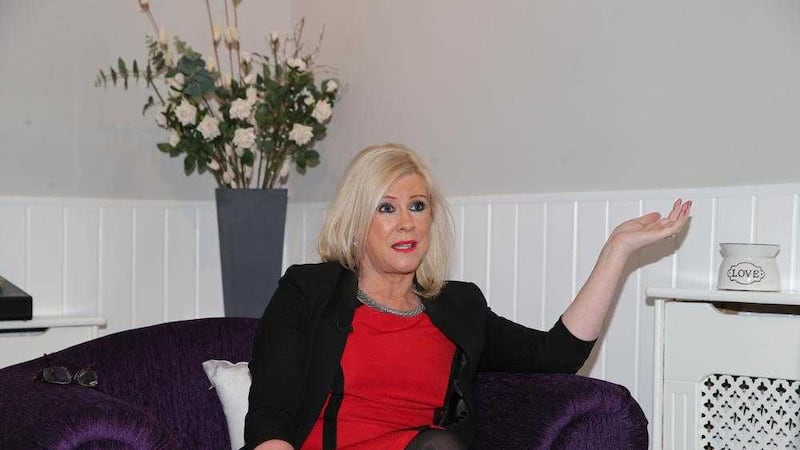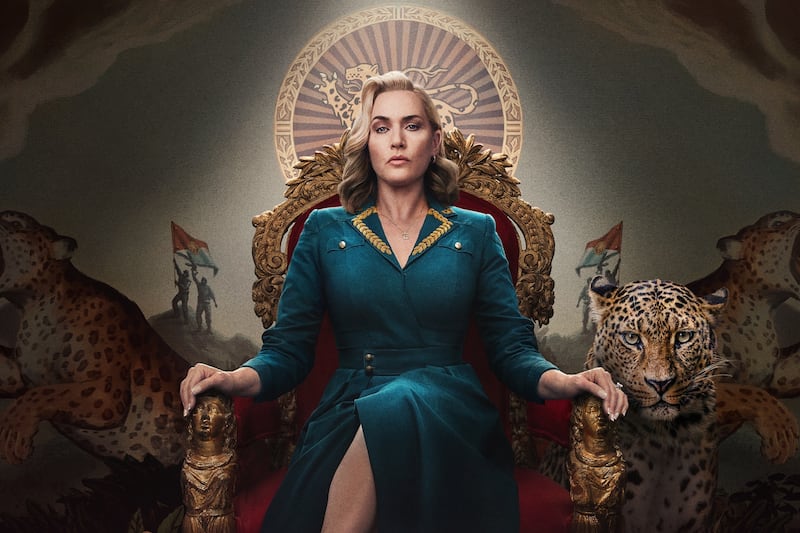INSTANTLY recognisable as the public face of Precious Life, Bernie Smyth is a woman who divides public opinion. Evangelical in her outlook, she is known for her uncompromising views and radical practices. The latter landed her before a magistrate where she was convicted for harassing former director of the Marie Stopes clinic Dawn Purvis – a conviction that was overturned on appeal.
For those who support her campaign, Ballymena woman Smyth holds almost cult-like status; for others she's a religious fanatic with no concept of the potential harm the protestors outside Marie Stopes have on vulnerable women in the midst of crisis pregnancies.
A face-to-face meeting with the high priestess of a movement that is in my eyes anti-women, anti-equality and more focused on an ideology than the rights of the living always had the potential to be tetchy.
Researching the woman behind the perfectly coiffured exterior threw up little in the way of personal information about what drives someone to dedicate herself in such a high-profile way to what many now consider to be an outdated religious viewpoint in an increasingly secular society.
A mother of four children, ranging in age from 28 to 15, and a grandmother-of-five, she tells me she was an assistant manager in fashion chain River Island prior to having an epiphany at a pro-life rally in Dublin in 1999 that caused her to give up her job to follow a new path in publicly protesting against any change or relaxation of the laws on abortion in Northern Ireland.
"I was working part time because I'd three children and the hours suited me. I've been married now 31 years, and very happily so. I was just a normal working mum with a very normal ordinary life," she tells me.
"I've a strong Catholic faith, and I went to a conference – it was a pro-family religious sort of conference and it was difficult for me to get off work to get to it but I just felt I needed to go; something was driving me.
"There was a bomb scare at Newry and I'd to get off the train and bus it down. I just thought is this worth it but it was during the conference that I picked up leaflets on abortion. I suppose up until that time I hadn't really thought a lot about it.
"I knew it was something people did. I had a couple of friends who had abortions and I knew how it affected them and the transformation on their lives: they were out all weekend getting paralytic drunk to cover up.
"I didn't judge them. I felt pity and compassion for them but I still didn't understand fully what abortion was. But I opened up this brochure and there was an image of a baby that had been aborted and at that split second my life changed. I think I was in a state of shock; I was horrified.
"I thought: Is abortion to the world just a word?
"So I just started to read up and make calls and started talking to my husband and I thought, 'Why do people not know about this? Why is it being swept under the carpet?'"
The 53-year-old says her husband Derek is not overly religious – "He wouldn't be someone who is gospel greedy, as they say" – but adds that he shared her concerns.
"And so I gave up my job – of course, with the agreement of my husband. I said, Derek I'm giving up my job because I feel a calling to do something".
With three children in their 20s and one teenager, she says her children don't share her religious views "but they respect that faith is important".
"I was brought up with a strong faith, I was once a very ordinary everyday person as well, a teenager who loved to party and did everything everyone else does and I see my children being the same but there's a core root there. That's my personal faith; it's not that I would force on my children.
"One of my daughters in particular she went to university in Liverpool and she had been part of the early stages of our campaign and she shared with me that when she met with new friends at university who were abortion-minded or considered abortion she was able to give them the information and facts and she herself helped young people through crisis pregnancy".
"We are just an ordinary family, albeit a family with a mother who is quite outspoken on this issue".
Recent publicity means Smyth is now recognisable in the street and says people often refer to her as that "abortion woman".
"I say, well I'm actually the pro-life woman because obviously people don't look at the terminology. When I went through the court battle I didn't know if people would be judging me negatively. I would go to Sandy Row to the shops and people would stop in the street and shout 'We support you', 'Keep going' – and that really encouraged me.
"Last Christmas was difficult because I'd just been convicted, through that process two of my daughters were pregnant and that was very difficult and hard for them," she says.
A ruling by Justice Horner in the High Court earlier this month attempted to give clarification to medical professionals dealing with cases of fatal foetal abnormality or rape. The court was told that in three years 40 children under the age of 16 had travelled to England for an abortion.
Under law those pregnancies would all be considered a result of a sex crime as the young girls were all under the age of consent.
However, Smyth doesn't agree. "We live in a very sexualised society and there's very clear evidence that more young people are sexually active than ever. Those children are not sexually abused. It's a crime as such but it's a reflection of the societal times we live in that more and more young people are becoming sexually active at 14 or 15."
Her views are so uncompromising that she believes that even when a mother is diagnosed with cancer during pregnancy, abortion should not be considered on medical grounds to allow life-saving treatment; the same applies if a child has no chance of survival outside the womb.
"In a very low dose they are able to administer that treatment during pregnancy. I'm not opposed to medical care – I'm in agreement that women must be given treatment, but ethical treatment," she says.
"What's merciful about taking a little child? Why not leave it alone to let the child die naturally? Why decide to take a child at piecemeal from its mother's womb?
"In an abortion clinic those babies are not treated with mercy. There are children who are alive now who are six or seven and were given a fatal diagnosis.
"I don't agree with abortion in any circumstances. I believe if a woman's life is in danger that she should be treated with dignity and respect and given all the medial care – but I also believe that child should be treated with dignity, respect and care.
"And I do believe that sometimes, in those cases as we have seen, that a child may die as an effect of medical treatment but every child and every mother should be treated and killing one doesn't free up another."







